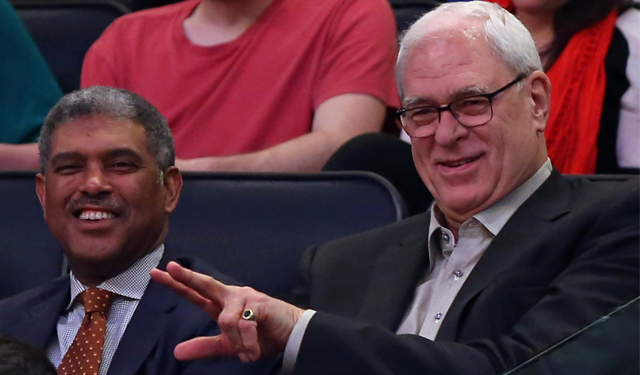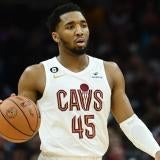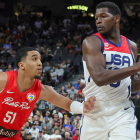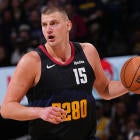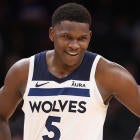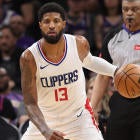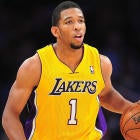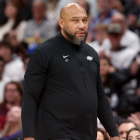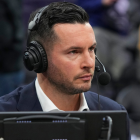You can't rebuild in New York City. That's what they say.
That's been the thinking behind every bad move Isiah Thomas was allowed to make during his time running the New York Knicks. Just keep spending money and eventually you'll have enough talent on the roster. Never mind that you need the right talent on the roster more than you need a proper amount of talent. The idea has always been to make the big splash in free agency and dazzle the "tough New York media" with your new stars.
That sort of worked in 2010, but not to the degree we were supposed to see from a Knicks team preparing years for that offseason. LeBron James was the target that summer, and had all sorts of inaccurate rumors about bonuses he'd receive by being in the big market. It was almost as if his destiny was supposed to include saving the Knicks franchise because it had become this pitiful charity case. Instead, LeBron went to Miami and the Knicks' backup plan of Amar'e Stoudemire and his uninsurable body came to fruition.
Stoudemire was incredible for the first couple of months. Then the Knicks got their second star with the acquisition of Carmelo Anthony. In the process, they hemorrhaged assets to the Denver Nuggets so they could acquire him -- showing a shortsighted viewpoint of how to really pull this off. The Boston Celtics still had their Big Three. The Miami Heat were showing off their Big Three every night. The Los Angeles Lakers were the defending champions with their Big Three.
The Knicks needed a Big Three. They couldn't wait until the summer when there was a chance of affording Carmelo with cap space in free agency. Their lack of patience and nonexistent foresight ruined the building process and in their haste, it set the tone for poor decisions down the road. For every good move the Knicks made, it seemed like they had two shortcuts they'd take which sabotaged the process. And with Stoudemire's body failing them at every turn, the Big Three became just one guy and the Knicks have been hoping for a savior in the process ever since.
That savior is supposed to be Phil Jackson. He was supposed to have the plan that overpowered the impatience of an organization run by James Dolan. And in the first year of Jackson's reign, we actually saw a perfect storm of incompetence. The Knicks were atrocious, finishing with the second worst record in the NBA with three supposed franchise-changing prospects entering the next draft.
The Knicks ended up with the fourth pick -- a devastating bit of misfortune in jumpstarting the Knicks' rebuilding process. They took the foreign mystery in Kristaps Porzingis -- someone who isn't supposed to be able to stand up to the pressure of playing for the Knicks and in the New York market. And as the summer turned into free agency, the Knicks threw their money and their potential prestige at LaMarcus Aldridge, Greg Monroe, and DeAndre Jordan. None of them biting on such an endeavor.
While this is supposed to induce panic and more feelings of doom, the early returns on the Knicks' offseason are yielding a more balanced summer of team-building. The prestige of the franchise and the trust of the league's stars (outside of Melo) aren't there. That's not something the Knicks know how to deal with and it's something that often leads to knee-jerk reactionary moves. But that hasn't happened so far.
When you look at what the Knicks have accomplished, they've gone down the list of things they need and it appears they're checking the boxes of what a normal team would do. The Knicks taking Porzingis with the fourth pick can certainly be looked at as risky. The unknown can be exhilarating with a prospect, but it also leaves more doubt than usual. Whether you view him as a potential star or not, he's a talented prospect looking to be developed properly. That's where the Knicks end up coming through on this pick with success.
From there, they moved an inefficient chucker in Tim Hardaway, Jr. for a promising point guard in Jerian Grant. It's not only a position of need, but Grant is an athletic, big point guard who fits exactly what Jackson's teams have often employed.
The Knicks missing on Aldridge (never a real possibility) and Monroe (a tough pill to swallow for a big market team needing a max offer to bowl him over) aren't actual problems for them because it's forcing them to find suitable role players and build the potential of depth, instead of a house of cards construction of a Big Three. Their seemingly false hope of DeAndre Jordan deciding to join them is holding up the signing of Robin Lopez -- a player who excelled as a center flanking a high volume power forward last season in Portland.
Putting Lopez as the defensive anchor on a team that should move Carmelo Anthony to the stretch-4, where he can actually hold his own defensively instead of getting lost against quicker wings would be an ideal pairing. He's not the Defensive Player of the Year candidate Tyson Chandler was in the Knicks' fleeting recent success, but he's cut from a similar mold of never needing offensive touches to fuel him to get the job done. And whether it's in pick-and-rolls or flash post-up opportunities, Lopez has posted highly efficient scoring in those situations.
By grabbing a respected two-way guard in Arron Afflalo on a smart two-year deal, the Knicks have also added a solid 3-point shooter, a player who can get his own shot, and someone willing to be a plus defender. He's everything as a role player J.R. Smith wasn't and couldn't be consistently. It's the consistency of the role players New York is bringing into the fold that provides the stability needed to keep building on each minor success.
The Knicks will still have a little money to play with and try to add at least another solid role player in the process. In doing so, they will have built an unfamiliar, unattractive core to the bright lights and the aggressive digital recorders of those covering the team. It will be a core you're not supposed to put in Madison Square Garden because the Knicks have been told they need to have stars.
Instead, they're building what appears to be more of a basketball roster than they previously had. It doesn't mean the Knicks are fixed. They still have holes and they need another offseason of smart spending and a higher salary cap to keep filling in their depth chart and rotation. But they're building progress within the framework of the organization.
It's slow progress and slow progress isn't supposed to fly. However, this is what normal basketball organizations do. They build. They rebuild. They find good role players. They draft with upside and hopefully develop. You can say the Knicks aren't a normal franchise, but that's been the problem. They've tried to be something they're not. Perhaps being normal for a change will turn Madison Square Garden from a basketball mausoleum into something more alive.
